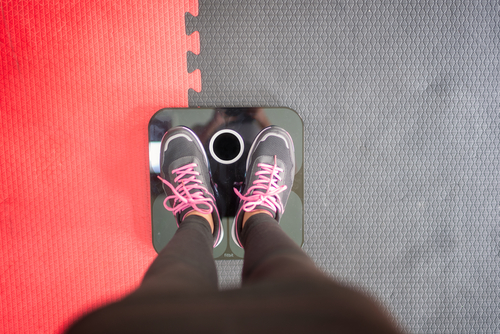New scientific research is revealing some truly surprising reasons we’re gaining weight As it turns out, people have oversimplified things by concluding that all you need to do to lose weight is minimize caloric consumption and work out more. Body weight is a far more complex matter than we ever imagined. Let’s take a look at 3 of the additional factors that can influence weight, along with scientific studies that shed light on this complexity.
1. Bisphenol-A (BPA) In Our Food
BPA is a chemical that we come in contact with regularly via food cans, plastic containers and grocery store receipts. It negatively affects the human endocrine system and can disrupt metabolic processes. Researchers have now determined that, when the body breaks it down, it appears to be transformed into a compound that probably causes obesity.
Main Takeaways: Stop eating canned foods and avoid using plastic food storage containers to avoid ingesting unnecessary BPA. Instead, eat fresh foods and, if necessary, store the leftovers in glass or ceramic containers.
2. Out Of Balance Circadian Rhythms
“Circadian Rhythm” is a fancy way of referring to our natural, cyclical patterns for behavior including waking, sleeping and being alert.
Scientific studies demonstrate that there is a link between circadian rhythms and metabolism. Obesity is correlated with both insufficient sleep and higher than usual amounts of sleep.
Main Takeaways: Make a conscious effort to wake up, eat, work, exercise, nap and go to bed on a regular schedule – preferably one that has you awake during the day and sleeping at night. Always get 7-8 hours of sleep daily – no more, and no less.
3. Bacteria In Your Gut
Various types of bacteria take up residence in your gut, and they have a significant influence on your metabolism. Wondering how that could happen?
Well, it all starts at birth. If your mom gave birth to you naturally, you’ll be colonized by a different set of bacteria than if she had a c-section. The short version of the story: Scientific researchers discovered that a natural childbirth results in the infant getting colonized by mom’s bacteria – typically Lactobacillus. A c-section delivery typically results in the infant getting colonized by random bacteria, most likely pathogenic microorganisms such as Staphylococcus and Acinetobacter that are typically found hanging around hospitals. (Yikes!)
If your mom breastfed you, you most likely have significantly more beneficial bacteria than you have if she fed you formula. Except that, any time you’ve taken antibiotics, you’ve probably killed off many of the beneficial bacteria that could help you metabolize your food better. Researchers have discovered that there are specific strains of gut bacteria associated with obesity, and different strains that are associated with slender body types.
Your dietary choices also play an important role in what kind of bacteria are living in your gut. Probiotic foods and drinks can help to supply you with beneficial organisms. Eating the right kinds of oil can also help to support good bacteria in your gut.
Main Takeaways: Discuss your diet and weight loss goals with a qualified dietitian who can help you better understand how to get and support the beneficial microorganisms you need for optimum metabolism. (Your health insurance may cover the costs of your visit). Never take antibiotics unless your primary care physician insists that they’re an absolute necessity. Increase your consumption of beneficial probiotic foods and drinks. Consume omega 3 fats instead of Omega 6 fats.
Obviously, food consumption and physical activity play important roles in how much we weigh – but as you can see from this fascinating scientific research, they aren’t the only factors that affect how thin or fat we become. If you’ve been unable to lose weight despite valiant efforts to eat less and exercise more, one or more of the above-mentioned factors may be to blame. If that’s your situation, hopefully, you will see positive results from trying the suggestions mentioned above. Perhaps these suggestions could help you make progress towards reaching your desired weight.










